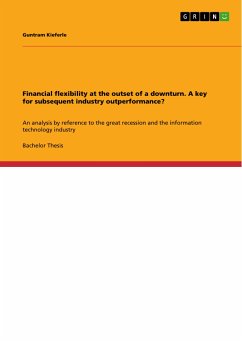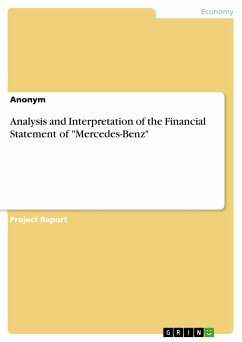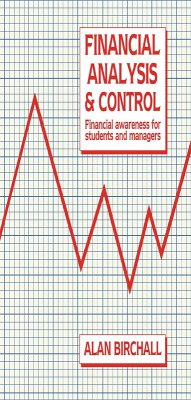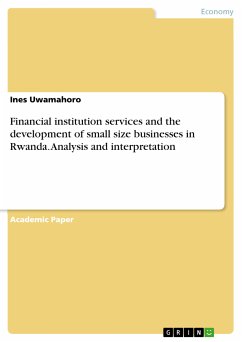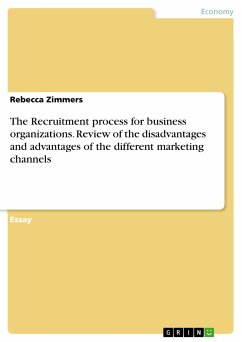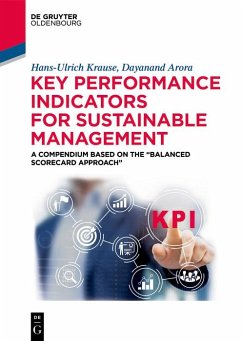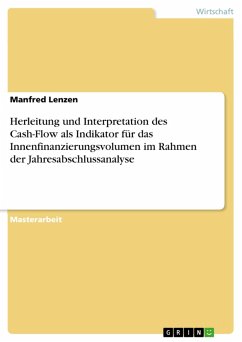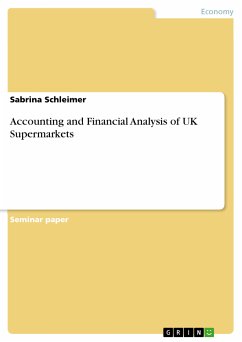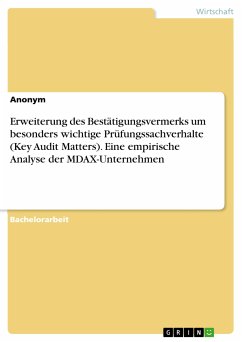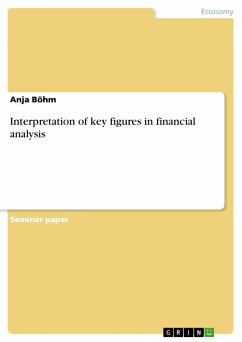
Interpretation of key figures in financial analysis (eBook, PDF)
Sofort per Download lieferbar
Statt: 18,95 €**
16,99 €
inkl. MwSt. und vom Verlag festgesetzt.
**Preis der gedruckten Ausgabe (Broschiertes Buch)
Alle Infos zum eBook verschenkenWeitere Ausgaben:

PAYBACK Punkte
0 °P sammeln!
Seminar paper from the year 2008 in the subject Business economics - Accounting and Taxes, grade: 1,3, University of Applied Sciences Berlin, course: Financial Management, language: English, abstract: Executive Summary Financial analysis can be conducted internally or externally to assess a company's financial condition by analyzing mainly its financial statements. A company's overall financial condition can be appraised using ratio analysis to examine its key figures in leverage, liquidity, efficiency and profitability. Within this paper, next to the theoretical explanations, the different ra...
Seminar paper from the year 2008 in the subject Business economics - Accounting and Taxes, grade: 1,3, University of Applied Sciences Berlin, course: Financial Management, language: English, abstract: Executive Summary Financial analysis can be conducted internally or externally to assess a company's financial condition by analyzing mainly its financial statements. A company's overall financial condition can be appraised using ratio analysis to examine its key figures in leverage, liquidity, efficiency and profitability. Within this paper, next to the theoretical explanations, the different ratios will be observed for the two retail companies Wal-Mart Stores Inc. (Wal-Mart) and Target Corp. (Target). Due to its large contribution to the US gross domestic product (GDP), the retail industry and its most important companies for the US, Wal-Mart and Target are examined more closely. Wal-Mart is a world-wide operating discount store, which engaged 2.1 million employees in January of 2008 and whose revenues made up about 2.1 % of US GDP. Compared to Wal-Mart, the upscale discounter Target employs 366,000 people within the US. Within this paper the following leverage ratios, which are computed to evaluate a company's ability to meet financial obligations, will be theoretically explained and then examined more closely for the US discounters Wal-Mart and Target: the debt-ratio, the debt-equity ratio and the times-interest-earned ratio. The computed leverage ratios need to be confronted with the liquidity ratios to investigate, whether a company can also cover its short-term debts in order to survive and to then meet long-term debt obligations. Within this paper the current ratio, the quick ratio and the cash ratio will be regarded more closely for Wal-Mart and Target. How efficiently a company makes usage of the invested current and fixed assets is detected using efficiency ratios, like the sales-to-assets ratio, the days in inventory ratio and the average collection period. Profitability ratios investigate how profitable a company works compared to its competitors analyzing the net profit margin, the return on assets and the return on equity as well as the payout ratio. Finally connections between the profitability and efficiency ratios will be shown using the Dupont system.
Dieser Download kann aus rechtlichen Gründen nur mit Rechnungsadresse in A, B, BG, CY, CZ, D, DK, EW, E, FIN, F, GR, HR, H, IRL, I, LT, L, LR, M, NL, PL, P, R, S, SLO, SK ausgeliefert werden.




